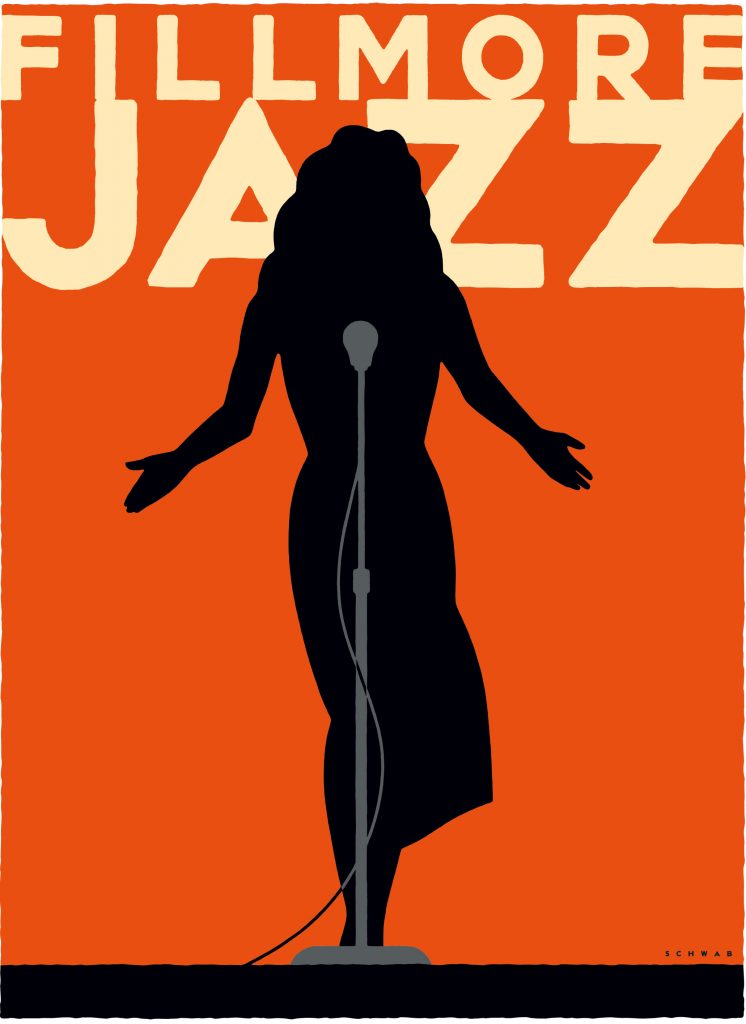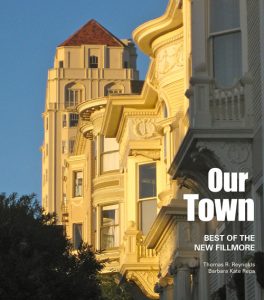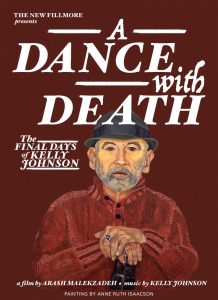ARTISTIC DIRECTOR | JASON OLAINE
When artistic director Jason Olaine began planning this year’s lineup for the Fillmore Jazz Festival, he found himself booking so many women performers he had a theme.
“There are so many great women jazz artists in the Bay Area,” he says, “and not just vocalists.”
Olaine’s day job as director of programming and touring for Jazz at Lincoln Center in New York keeps him on the front lines of jazz around the world. But Olaine says he is always happy to come back to the Bay Area.
“The Bay Area is my home — I am a third-generation Palo Altan,” he says. “My first jobs in the jazz world were at Yoshi’s in Oakland and the Gavin Report back in the early ’90s. I also interned at KJAZ and Jazz in the City, now SF Jazz. When Jazz at Lincoln Center approached me in 2011, there were a few things I asked for. One was whether I could continue as artistic director of the Fillmore Jazz Festival.”
He writes of his recent experiences:
It’s been an exciting few years since moving from the Bay Area to New York City (for the second time) to work for Jazz at Lincoln Center. My boss, Wynton Marsalis, is an inspiring leader. He’s focused and tireless, dedicated and driven, creative and supremely talented — and relentless in his pursuit of changing the world through jazz. It was over lunch here in San Francisco that he invited me to join him to do “great things.” A pretty lofty ambition, and one that I didn’t automatically buy into. How does one change the world through jazz? I think that one does it by doing — but it doesn’t hurt to have some guidance and inspiration. As part of our institution’s mantra, we believe that “jazz is a metaphor for democracy.” The three primary notions are:
• Because jazz is improvisational, it celebrates personal freedom and encourages individual expression.
• Because jazz is swinging, it dedicates that freedom to finding and maintaining common ground with others.
• Because jazz is rooted in the blues, it inspires us to face adversity with persistent optimism.
I like referring to these themes. I find them uplifting.
As director of programming and touring, I’ve been on the front lines of the opening of a Jazz at Lincoln Center jazz club in Doha, Qatar, and other potential outposts, including Shanghai. On a trip last summer to China, our hosts invited various groups of students to educational activities led by trumpeter Dominick Farinacci and his quartet, while adults and business leaders attended his evening concerts. It was thrilling and beautiful to watch the students, from elementary through high school, listen and interact.
Music transcends language; we all understand that. But what jazz offers is a way to join in and be a part of a group and at the same time assert your own individuality. You’re encouraged to improvise, to be unique, to stand out, yet fit in and play a supporting role. I don’t know if 20 years ago these children would have been inspired and encouraged (or allowed) to improvise over traditional Chinese tunes like Lilly or Plum Blossom, but they certainly were jamming on their traditional instruments over jazz versions of these tunes. And the adults were enthusiastic as well, especially when Dominick played these traditional songs or a Chinese pop tune with a jazz arrangement. Many of them busted out their cell phones to take pictures and shoot movies. I’ve never been so inspired to continue to dedicate my career to the growth of jazz than on that last trip to China.
That’s just one example, one small place, where there’s a story to be told of jazz touching people’s lives. I think all of us have a jazz story to tell: how we discovered it, or who are our favorite players or favorite songs. But it comes down, I think, to why we listen. Why do we feel the way we do when we hear something we like? Because it makes us feel good. And feelin’ good is good.
Read more: “Are jazz festivals excluding women?“
Filed under: Music





